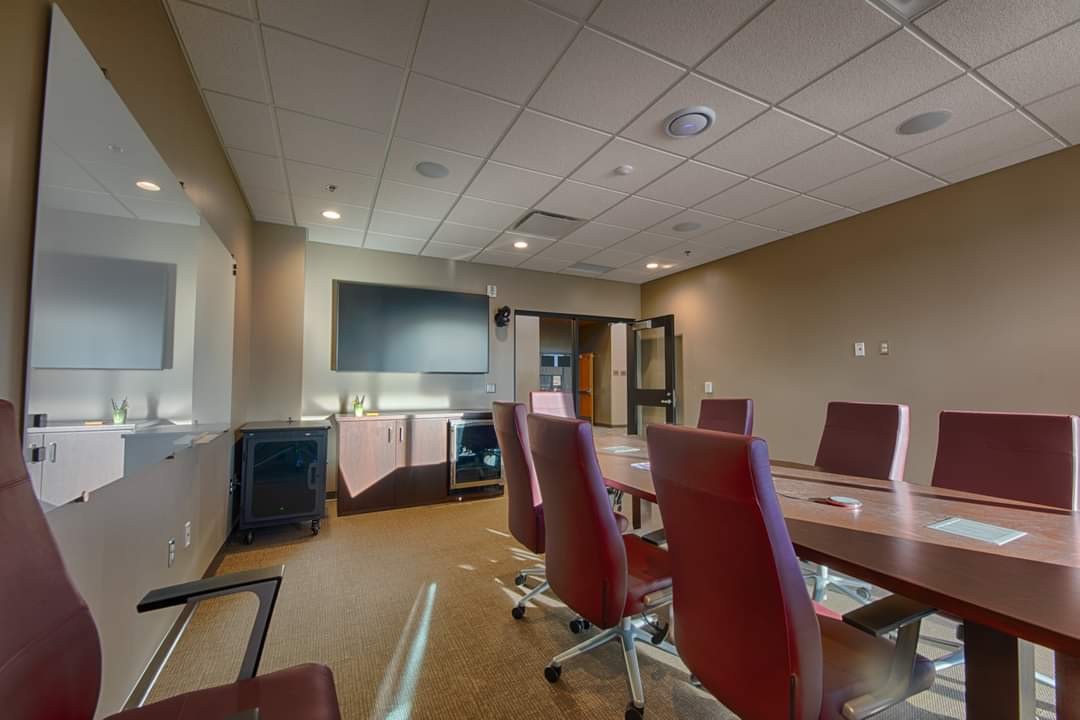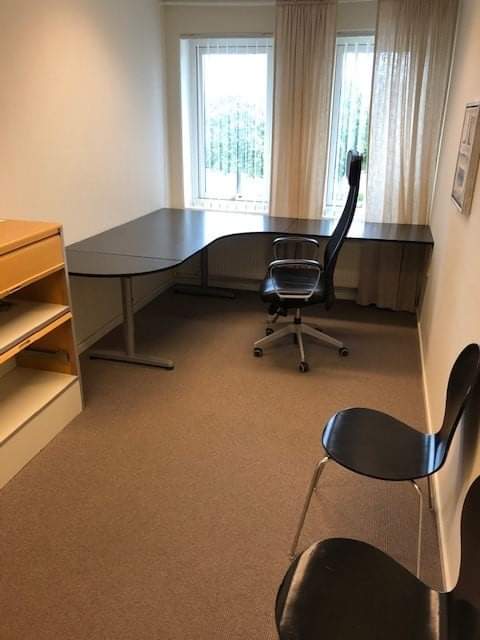PROFESSIONALS TO CONSIDER ENGAGING WHEN LEASING OFFICE SPACE

PROFESSIONALS TO CONSIDER ENGAGING WHEN LEASING OFFICE SPACE
Brokers are not the only Professionals to consider when leasing office space.
Leasing office space involves negotiation and potentially, significant construction.
A little-known fact about leasing office space is that the process can require a tenant to hire numerous professionals in addition to a commercial real estate broker, if you choose to use one.
This does not become evident to many business owners until they are knee-deep in the process and by then things are moving so fast, they may not have enough time to fully vet the professionals they need to engage. Awareness about the disciplines involved at each stage will help you prepare.

There is no regulatory body that governs the search for office space. A business can work largely on its own touring space, negotiating terms with a landlord, reviewing lease language and overseeing the buildout and the move. This approach works for some business owners that have the knowledge, time and confidence to take on this task without the help of professionals who specialize in these processes. Most tenants, however, appreciate the insights and expertise that various professionals can bring to this undertaking.
Below are the key professionals that a tenant should consider engaging, presented roughly in the order in which you would work with them.
1) Commercial Real Estate Broker
The leasing process is collaborative and features numerous professionals, including building owners, attorneys, architects, furniture vendors, construction companies, moving companies and others. A commercial real estate broker works with the tenant to oversee these parties and ensures that the baton is not dropped from one discipline to the next.
When working on behalf of a tenant, the broker is referred to as the tenant representative (or tenant rep) and guides the tenant through the process of finding and securing office space.
A tenant rep has fiduciary duties set forth by governing bodies in each state to safeguard the interests of the tenant. The broker generally counsels the tenant on the advantages and disadvantages of executing a lease in a particular neighborhood or building and with a particular landlord.
The broker will point out nearby amenities, traffic considerations and availability and cost of parking. They will also negotiate lease terms and offer counsel about what constitutes reasonable rental rates and expenses in a market and a building.
They also provide guidance about the floorplate of buildings under consideration and how each might work with the layout you are seeking for your office.
Brokers have access to market metrics that reveal asking rates and operating expenses in buildings, as well as data regarding lease “comparables” that show the rental rates and other deal terms pertaining to recent leases signed in or near a given property.
Comparables can help you avoid overpaying for your lease, as well as securing other beneficial terms. Additionally, brokers will leverage their market knowledge — garnered through years, or even decades of experience — to uncover appropriate space options and provide intelligence regarding the reputation and responsiveness of building owners and property managers under consideration.
Tenant rep brokers can also connect you with other professionals involved in the leasing process. Experienced brokers typically have a list on hand of recommended professionals, including attorneys, architects, general contractors, furniture vendors and moving companies, that they and their clients have previously worked with successfully.
These references are provided as a courtesy to clients and there is no obligation to use them. They do, however, offer the tenant a sampling of vetted companies that are motivated to deliver in order to continue to receive referrals from the broker.
2) Real Estate Attorney
The lease is the document that will govern the rights and responsibilities of both the tenant and the landlord during your time in the building, so clarity around each point is crucial.
A real estate attorney will represent your interests and ensure that key documents such as proposals and counter proposals, letters of intent and various iterations of the lease are carefully reviewed and reflect the terms and conditions discussed and agreed to with the landlord.
The attorney should specialize in or have extensive experience writing leases, ideally from both the landlord and tenant perspectives, so they can anticipate and counter the challenges an owner might present to a tenant.
By the time the lease is drafted, most of the negotiating with the landlord will have been completed. All terms memorialized in the Letter of Intent should be carefully transferred and clearly expressed in the lease. It’s important to note that the attorney can review the lease for legal accuracy so tenants are protected. However, unlike a broker, a lawyer does not have access to current lease comparables and cannot provide guidance about the fairness of the rental rate, expenses and other terms agreed to with the landlord.
3) Architect/Space Planner
For small- to medium-size space requirements the landlord typically has an architect on staff or on retainer and the landlord will pay for one test fit of the tenant’s layout. The test fit will show how well the tenant’s desired interior layout (e.g., offices, conference rooms, kitchen, cubicles and hallways) align with elements of the base building such as columns, windows, elevators, bathrooms and lobbies. Building floorplates can differ tremendously, meaning 5,000 square feet in one building may yield an extra conference room (with all else being equal) that another building floorplate cannot accommodate.
The tenant is free to engage their own architect if they wish, but the landlord’s architect has easy access to digital drawings of the base building and significant knowledge about its dimensions and nuances. Sometimes, however, when landlords are offering to pay for the buildout through a tenant improvement allowance , the tenant is required to use the landlord’s architect to finalize the plans.
PROFESSIONALS TO CONSIDER ENGAGING WHEN LEASING OFFICE SPACE
4) General Contractor and Project Manager
The major crossroads for most office tenants relates to the degree of construction necessary to build out office space. Small blocks of office space can likely be accommodated in a pre-built suite that is move-in ready, or nearly-finished space requiring cosmetic upgrades like paint and flooring prior to occupancy. With either of these options, the tenant need only work with the landlord to arrange for access to the suite so technology, furniture and other final items can be installed.
Significant construction requirements are a different matter. Now that the lease is executed, the space needs to be designed, permitted and bid out for construction. This marks the beginning of a construction process that could take many months, involving an architect, general contractor and subcontractors for plumbing, electrical, technology/telecom, carpentry and more. In most cases, the general contractor (GC) will serve as the project manager and oversee all the subcontractors, reporting on progress and delays directly to the tenant. In cases involving complex and extensive buildouts, however, a tenant may hire a construction project manager to oversee the GC and respond to the day-to-day issues that arise during construction.
There are numerous GCs and project managers in each market that concentrate exclusively on building interior office space. Building owners and tenant reps know who they are and are comfortable recommending them. This enables tenants to select from a list of experienced and previously vetted construction companies and managers.
For the most part, tenants are free to choose any GC they want. However, if landlords are paying for a portion of the build-out, they often require tenants to work with one of the landlord’s preferred GCs or and/or project managers.
5) Furniture, Technology and Moving Professionals
Furniture Vendors. There are a variety of ways to furnish an office. Tenants can use their existing furniture, purchase used furniture or buy or lease new pieces.
There are vendors that oversee one or all of these furniture arrangements. Explore those options with them and determine what makes the most financial (and functional) sense for your company. Vendors can provide anything from traditional desks with stacks of drawers to cube systems that offer partitions for privacy and separation. Options vary in price from inexpensive to luxury oriented.
6) Technology/Communications.
Commercial buildings typically feature either fiber or cable broadband and each has at least one service provider.
However, some buildings get service from a variety of internet providers. In those cases, the tenant can get bids from those sources to determine which one is most affordable or offers specialized connections should you require them. Cable installers (that work independently from Internet service providers) will run wires throughout your space connecting computers, routers, switches and storage networks from your office suite to technology closets in the building. If you choose to go wireless, you may want to hire a professional that can purchase, connect and configure a wireless router and system for your office.
7) Moving Companies.
If you are relocating from an existing office, obtaining bids is the first step in the process. Vendors will visit your office to assess what you have and how much it will cost to move, donate or dispose of it.
Typically, moving companies provide bids based on moving computers, printers, furniture and files and paper. Packing of books and paperwork into plastic crates provided by the moving company is typically carried out by employees.
SEE ALSO : How To Make Money On Fiverr Without Selling Anything
Moving small offices can be done over a weekend so employees can unpack at the new location the following week. Large, complex moves can occur over several weeks with staff working from home as items are relocated and technology is installed in the new office suite.
PROFESSIONALS TO CONSIDER ENGAGING WHEN LEASING OFFICE SPACE
Comments are closed.